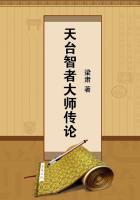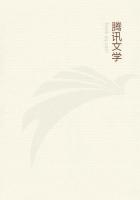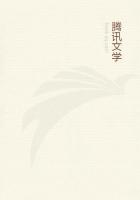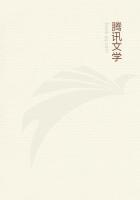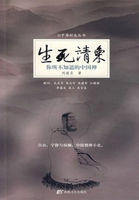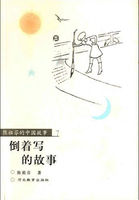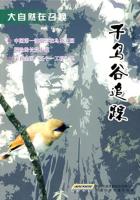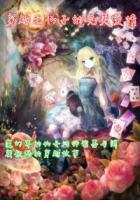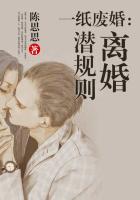Their neighbors are soon obliged to sell at the same price, though they cannot so well afford it, and though it always diminishes, and sometimes takes away altogether both their rent and their profit. Some works are abandoned altogether; others can afford no rent, and can be wrought only by the proprietor."
[ Smith, I, pp. 152-3 ]
"After the discover of the mines of Peru, the silver-mines of Europe were, the greater part of them, abandoned....
This was the case, too, with the ancient mines of Peru, after the discovery of those of Potosi."
[ Smith, I, p. 154 ] What Smith says here of mines is more-or-less true of landed property in general.
(d) "The ordinary market price of land, it is to be observed, depends everywhere upon the ordinary market rate of interest... if the rent of land should fall short of the interest of money by a greater difference, nobody would buy the land, which would soon reduce its ordinary price. On the contrary, if the advantages should much more than compensate the difference, everybody would buy the land, which would soon raise its ordinary price."
[ Smith, I, p. 320 ] If follows from this relation between ground rent and interest on money that ground rent must continue to fall until eventually only the richest people can afford to live from it. This means an increase in competition between those landowners who do not lease out their land. Some of them are ruined. There is once again an accumulation of large landed property.
This competition has the further consequence that a large part of landed property falls into the hands of the capitalists; thus, the capitalist becomes landowners, just as the smaller landowners are, in general, nothing more than capitalists. In this way, a part of large landed property becomes industrial.
So, the final consequence of the abolition of the distinction between capitalist and landowner -- which means that, in general, there remain only two classes in the population: the working class and the capitalist class. This selling off of landed property, and transformation of such property into a commodity, marks the final collapse of the old aristocracy and the final victory of the aristocracy of money.
(1) We refuse to join in the sentimental tears which romanticism sheds on this account. Romanticism always confuses the infamy of selling off the land with the entirely reasonable and, within the system of private property, inevitable and desirable consequence of the selling off of private property in land. In the first place, feudal landed property is already in essence land which has been sold off, land which has been estranged from man and now confronts him in the shape of a handful of great lords.
In feudal landownership, we already find the domination of the earth as of an alien power over men. The serf is an appurtenance of the land. Similarly, the heir through primogeniture, the firstborn son, belongs to the land. It inherits him. The rule of private property begins with property in land, which is its basis. But in the system of feudal landownership, the lord at least appears to be king of the land. In the same way, there is still the appearance of a relationship between owner and land which is based on something more intimate than mere material wealth.
The land is individualized with its lord, it acquires his status, it is baronial or ducal with him, has his privileges, his jurisdiction, his political position, etc. It appears as the inorganic body of its lord. Hence the proverb, nulle terre sans maitre ["No land without its master"], which expresses the blending of nobility and landed property. In the same way, the rule of landed property does not appear directly as the rule of mere capital. Its relationship to those dependent upon it is more like that of a fatherland. It is a sort of narrow personality.
In the same way, feudal landed property gives its name to its lord, as does a kingdom to its king. His family history, the history of his house, etc. -- all this individualizes his estate for him, and formally turns it into his house, into a person. Similarly, the workers on the estate are not in the position of day-laborers; rather, they are partly the property of the landowner, as are serfs, and they are partly linked to him through a relationship based on respect, submissiveness, and duty.
His relation to them is therefore directly political, and even has an agreeable aspect. Customs, character, etc., vary from one estate to another and appear to be one with their particular stretch of land; later, however, it is only a man's purse, and not his character or individuality, which ties him to the land. Finally, the feudal landowner makes no attempt to extract the maximum profit from his property. Rather, he consumes what is there and leaves the harvesting of it to his serfs and tenants. Such is the aristocratic condition of landownership, which sheds a romantic glory on its lords.
It is inevitable that this appearance should be abolished and that landed property, which is the root of private property, should be drawn entirely into the orbit of private property and become a commodity; that the rule of the property owner should appear as the naked rule of private property, of capital, divested of all political tincture; that the relationship between property owner and worker should be reduced to the economic relationship between the property owner and his property should come to an end, and that the property itself should become purely material wealth; that the marriage of interest with the land should take over from the marriage of honor, and that land, like man, should sink to the level of a venal object. It is inevitable that the root of landed property -- sordid self-interest -- should also manifest itself in its cynical form.

